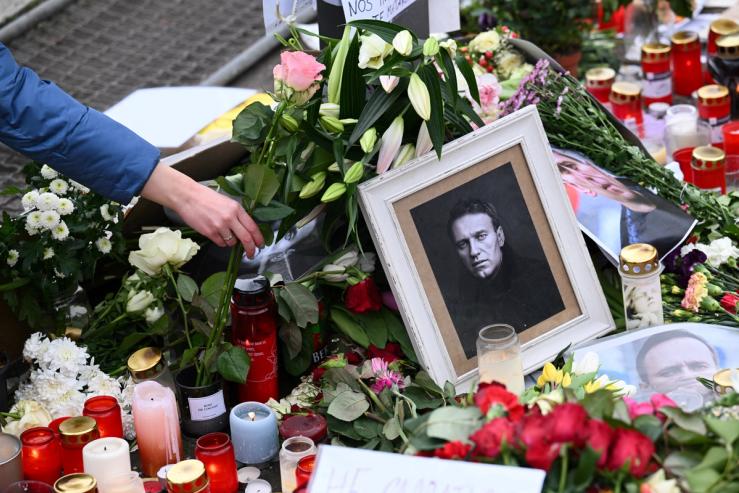The News
Five days after Russian opposition leader Alexei Navalny perished in an Arctic prison his death remains the subject of mystery, with the location of his body still unclear amid fears that authorities may be seeking to conceal evidence of poisoning.
State investigators said the official probe into Navalny’s death was being extended, and authorities in the remote penal colony have repeatedly shut down attempts by his mother and lawyer to locate his body. The activist’s mother has been informed that his corpse would be held for two weeks for “chemical analysis,” the BBC reported.
Russian state-owned outlet RT reported that a blood clot was the cause of death, while prison officials told Navalny’s mother that he had died of “sudden death syndrome,” a broad term that can encompass various causes of cardiac arrest.
Many Western governments and Russian opposition figures have said they believe Russian President Vladimir Putin is directly or indirectly responsible, after the 47-year-old was held for three years in prison in increasingly harsh conditions.
The activist’s wife, Yulia Navalnaya, has accused Russia of holding her husband’s body to wait for traces of “Putin’s Novichok” to dissipate, a reference to the nerve agent Russian agents used to poison him in 2020.
“We know exactly why Putin killed Alexei,” Navalnaya, who has sworn to continue her husband’s work, said. “We’ll tell you about it soon,” she added.
SIGNALS
‘Incomprehensible commotion’ the evening before Navalny’s death
One prisoner said there was “incomprehensible commotion” in the penal colony the evening before Navalny’s death, as prisoners were locked in, cell phones confiscated, and a number of cars arrived. “It was obvious that something was going to happen,” the prisoner told Novaya Gazeta, an independent outlet whose editor-in-chief won the Nobel Peace Prize in 2021. The inmate added that everyone in the prison had learned of Navalny’s death by 10 a.m. the morning of Feb. 16 – several hours before Russian authorities announced he had died.
On February 19, several employees of Russia’s federal prison system — including one official who had reportedly restricted Navalny’s rights and limited his ability to purchase food — were promoted by Putin, the investigative outlet iStories reported. Ivan Zhdanov, director of Navalny’s Anti-Corruption Foundation, called the promotions a “personal reward for torture and murder.”
Doubt continues to surround prison authorities’ timeline
Doubts began to swirl almost immediately after officials at the Polar Wolf penal colony where Navalny was being held announced his death in the early afternoon local time on Feb 16, saying he collapsed after going for a walk and failed to regain consciousness.
Independent Russian outlets quickly found several holes in the Kremlin’s official timeline. While prison authorities said a team of paramedics started giving Navalny care within seven minutes of his collapse, a human rights lawyer told Meduza, a leading Russian independent outlet, that it beggared belief that a patient inside a Russian maximum-security facility in the Far North would receive treatment that quickly.
And according to the authorities’ timeline, he went for a walk at around 10.30 a.m, but Navalny had previously written that inmates in solitary confinement took walks earlier, at 6.30 in the morning, according to The Moscow Times.
Navalny’s death follows rumors of prisoner exchange and alleged breakout scheme
For some of Navalny’s supporters, his death was all the more tragic due to persistent rumors that the activist might be freed as part of a prisoner exchange between Russia and the West. Sergei Guriev, a longtime Navalny supporter, said in September that he knew based on “direct and indirect” correspondence with Navalny that the opposition leader was willing to leave Russia, something he had previously refused to consider even if it meant staying in harsh prison conditions.
After Navalny’s death, the Russian Volunteer Corps, a Russian paramilitary organization based in Ukraine, claimed it had been planning to rescue Navalny from the penal colony, releasing photos as evidence of their alleged connections within the jail service. The claims of the RVC, which is led by a far-right Russian national, could not be independently verified.



